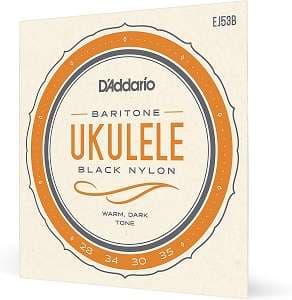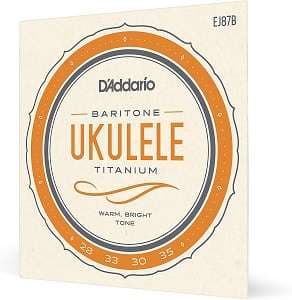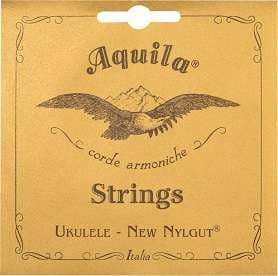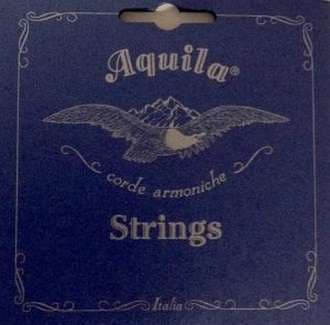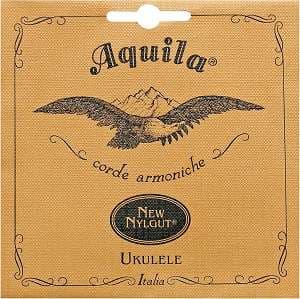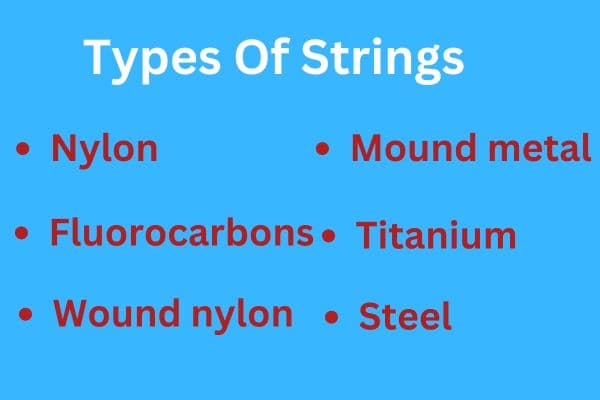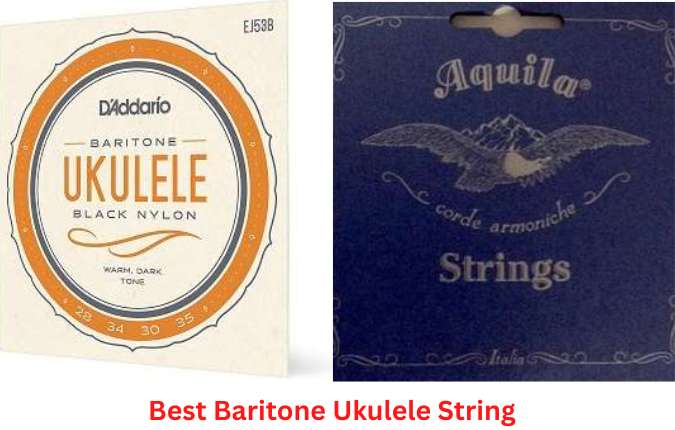
We intend to uncover the pros and cons of different materials, brands, and gauges of the best baritone ukulele string. Therefore, we’ve experimented many times with different baritone ukuleles and abundant string sets. Consequently, we’ve realized that a quality set of strings might entirely change the sound and playability of the instrument.
Honestly, picking a quality baritone uke string can get challenging. There are several aspects to consider when re-stringing your instrument – playing style, versatility, expected overall sound, and budget. These might vary depending on your specific expectations and needs.
We’ve compiled several famous brands of baritone ukulele below. So you can opt for one that fits you from among them.
Top 5 Best Baritone Ukulele String
1. D’Addario EJ53B Pro-Arté Rectified Baritone Ukulele String
D’Addario, made in the USA, has introduced this EJ53B string set essentially for the baritone ukulele. The brand has customized this string set to use with standard DGBE tuning.
The third and fourth strings feature a silver-plated copper wound on nylon complimented by the first and second strings, built with black precision-modified nylon.
Unmatched ukuleles launched by the company, each black nylon string is a carefully uncentered ground for an ultra-smooth, too-precise final diameter and unparalleled articulation with a warm, long acoustic tone.
As with other nylon ones, their strings may need some time to stretch and show their full potential.
You’ll experience its sound like a full-blown acoustic guitar with clear highs, robust lows, and, overall, very little resonance.
2. D’Addario EJ87B Titanium Strings for Baritone
Many players have already employed these items on their ukuleles and mention they are comfortable. The EJ87B features thinner and less ‘sticky’ and raises resonance more than traditional ones.
EJ87B inserts titanium model, meaning it is not a metal string. Practically, it remains a monofilament wire inside a nylon sheath. They are almost clear in color with an almost metallic core, barely visible.
Compared to Nilguts and fluorocarbons, titanium gets noticeably thinner and louder and has a texture that gives the sound a more metallic edge. In addition, many find that it turns them into resonance better.
Once tuned, it produces a sound better than the four high strings of a parlor-sized guitar. So we consider if you shop for these, they will deliver a better experience in playing the instrument.
3. Aquila 23U Nylgut Baritone Ukulele String – High G Tuning
If you want to be pleased with getting a Nylgut series string set for the baritone, this Aquila 23U will fulfill your needs. This set will produce a great sound even after many hours of playing.
A set of Nylgut is a synthetic plastic compound. Usually, Nilgut tunes the instruments to the proper fret. Besides, it produces a natural sound with pure gut-like density and stays stable under changes in humidity.
We feel these models will add sheer perfection to your ukulele. Further, they contain the right thickness to produce the right pitch at the desired tension.
These keep accurate time and do not continually go out of tune even after the necessary period of expansion and adjustment.
While inexpensive strings are getable, buying the best value for money becomes more troublesome than the 23U. Also, they are durable and will perform better than you expect.
4. Aquila Sugar 156U Baritone String
Aquila Sugar 156U may become the best you have ever used in your instrument. They provide a sweet sound. Practically, they come from plastic material obtained from the sugarcane plant.
One fact to note about the 156U is they can need some time to break in. We want to say that these are of stunning quality. So once your tunings are settled, they will become flawless – it just takes time!
You’re probably wondering what some weird sugarcane plastic is going to do with your device, right? Well, they seem to mix nylon-string sweetness with fluorocarbon-string clarity. Honestly, the 156U remains supple, responsive, and very resonant.
Any baritone uke player will love these types. They may not be the best for beginners because they take a little longer to break in, although these sugar strings are ideal for any playing style.
5. Aquila 21U Baritone Ukulele String Set
One of the most popular ukulele strings on the market is the Aquila model, utilized in many high-end instruments. Many leading musicians utilize this string set.
Note that baritone sets and some other frets use wound bass types. They get worn out rapidly. Aquila offers individual strings for this reason, so you don’t have to change all the strings once fitted.
These types are the best in our search for exploring the top baritone strings. In reality, the low D and G strings have a bright and sustained melody. They still hold the same frets as almost all baritone strings but last longer than others.
The high “Nylgut” types sound smooth and natural when played. In addition, they are more in tune with the long term than others. If you are still interested in relishing beautiful sounds, you should attempt them.
What Types Of Strings Are Available?
A widespread classification of different types of ukulele strings is seen. Typically, nylon is polymer, but other alternatives are on the market. These are:
Nylon
The most common string type used on most ukuleles is nylon. It consists of a variety of ways to produce different sounds.
By pushing molten nylon through holes of various sizes, affordable strings are made. On the contrary, high-end nylon ukulele strings apply the same process but are finely grounded afterward to retain consistency.
Considering the size of all ukuleles, they get suited to the baritone scale to produce a warm sound but stretch over time. Further, temperature and humidity might impact them.
Fluorocarbons
Strings made from these materials remain essentially polymer-based. But these are akin to fishing lines and are too robust compared to a standard nylon string.
Temperature keeps a low impact on fluorocarbon types. Consequently, they become more suited for warmer climates.
Wound nylon
Generally, wound nylon appears in sets of two lower strings on the larger scale in baritone and tenor. These are nylon strings, firmly covered in a fine polymer thread.
While it is necessary for these larger scales because of their extra strength, they make finger squeaks when playing.
Mound metal
As with wound nylon, this type of metal string is the most subtly covered with aluminum or copper and produces finger squeaks.
Titanium
These feature a monofilament material. As a result, these are perfect for baritone or any scale ukulele and are very durable and robust. They are expensive but last significantly longer than polymer-based strings.
Steel
They are thought of as specialist instruments made of steel strings. Practically, these are not recommended for most ukuleles as they can harm your instrument due to the excessive tension required.
Conclusion
Each instrument shows a response differently to a similar string. What sounds better on one ukulele might sound terrible on another.
Once you’ve established your basic sound-independent string preferences, such as tension and feel, you can create your ukulele sound depending on the strings you are about to use.
Hopefully, our article will help you buy the best ukulele strings. In addition, you can relish a great time playing your instrument.
Read also:
